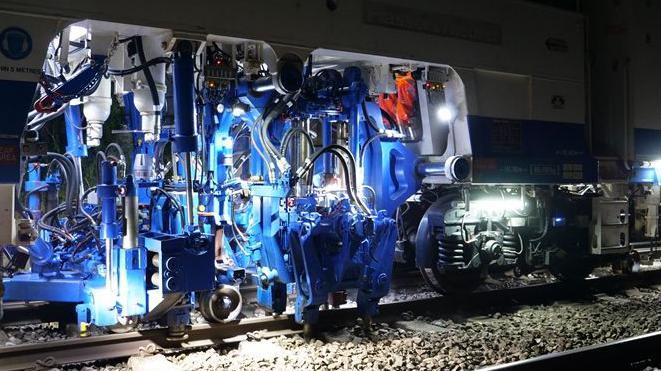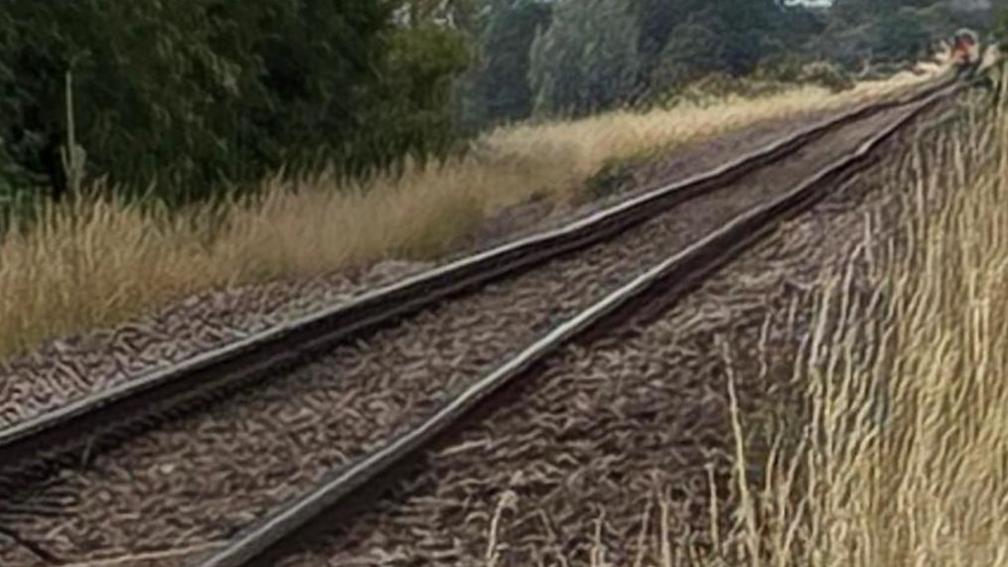Trains halted by shrinking peat affecting tracks

A tamping machine like this will be used on the Fen Line during the week
- Published
Rail services are being disrupted as engineers stabilise tracks affected by the ground moving in recent hot weather.
Network Rail said peat soil under the Fen Line between Ely in Cambridgeshire and King's Lynn in Norfolk had shrunk, causing the track to drop and become uneven.
It apologised to passengers, blaming the problem on "the driest spring in more than 50 years".
Buses will replace trains on Great Northern services from 21:00 BST on Monday until Friday morning.
The following Great Northern services will be affected by the work:
The last train to King's Lynn will be the 19:39 service from London King's Cross
The last train from King's Lynn will be the 20:42 service to London King's Cross
The first service to depart King's Lynn each morning will be the 05:14 service to London King's Cross

The tracks are uneven because of the peat shrinkage, the company said
Network Rail said the "urgent late-night engineering work" was needed to improve the condition of the track, and while speed restrictions were in place to keep trains running safely, services sometimes needed to be amended or reduced because of the longer journey times.
"The aim of the work being carried out by Network Rail on the Fen Line is to try to limit the effects on Great Northern services," it said.
"Engineers will use machines called tampers to lift the track, push ballast underneath and create a solid foundation so that trains can run smoothly.
"This type of work was already planned... with train services finishing earlier, but tamping will now be taking place for around an extra hour each night to make the maximum impact."
Network Rail apologised to passengers for the inconvenience, but added: "In the last two years we have dropped 25,800 tonnes of ballast on this part of the line to try to minimise the effects of peat shrinkage, but an exceptionally dry spring this year has meant that it hasn't been possible to eliminate track issues."
Get in touch
Do you have a story suggestion for the East of England?
Follow Cambridgeshire news on BBC Sounds, Facebook, external, Instagram, external and X, external.
Follow Norfolk news on BBC Sounds, Facebook, external, Instagram, external and X, external.